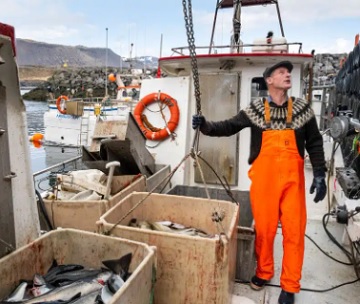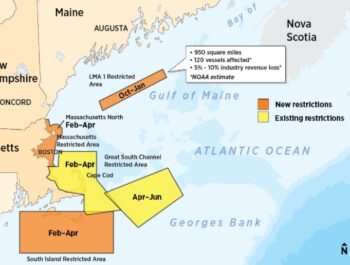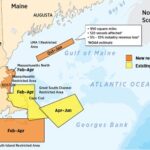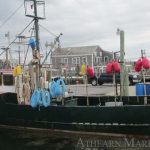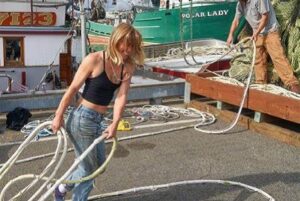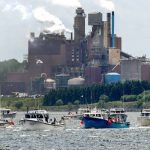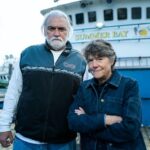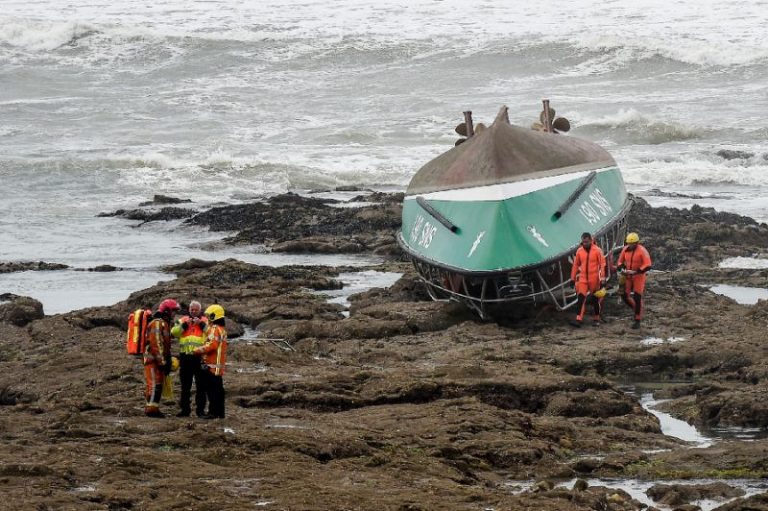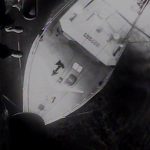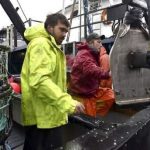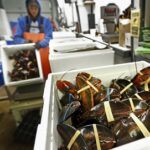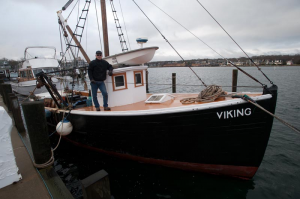Tag Archives: the fishing industry
Crisis Hotline: New option for farmers, ranchers, loggers and fishermen in Oregon
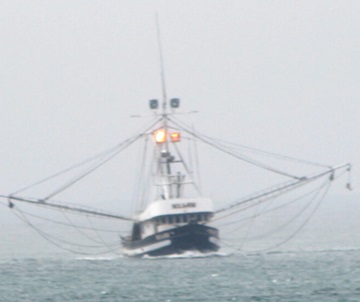 A new hotline, the Agristress Helpline, launched in Oregon in September. It is tailored to support those who work in agriculture, forestry or the fishing industry through a phone and text service that operates 24 hours a day, seven days a week. The helpline is free and has trained counselors with experience in those industries who can take phone calls in 160 languages, with English, Spanish and Vietnamese professionals available to respond by text. Experts say the line is sorely needed. Although the 988 crisis line provides a similar service, the Agristress line is specialized to address the needs of farmers, ranchers, loggers and fishermen. They often work in social and geographic isolation and in areas with limited access to health care services. These professions also have to grapple with extreme weather conditions, such as flash flooding or drought, and they face fluctuating commodity prices. >>click to read<< 18:06
A new hotline, the Agristress Helpline, launched in Oregon in September. It is tailored to support those who work in agriculture, forestry or the fishing industry through a phone and text service that operates 24 hours a day, seven days a week. The helpline is free and has trained counselors with experience in those industries who can take phone calls in 160 languages, with English, Spanish and Vietnamese professionals available to respond by text. Experts say the line is sorely needed. Although the 988 crisis line provides a similar service, the Agristress line is specialized to address the needs of farmers, ranchers, loggers and fishermen. They often work in social and geographic isolation and in areas with limited access to health care services. These professions also have to grapple with extreme weather conditions, such as flash flooding or drought, and they face fluctuating commodity prices. >>click to read<< 18:06

Breaking news: Scottish Government backs down over HPMAs
Mairi McAllan, Scotland’s Net Zero Secretary, announced today that both the timetable – with implementation due to take place by 2026 – and scope, covering 10% of Scotland’s coastal waters, were no longer government policy. The Scottish Government had published a consultation document last December, setting out plans for Highly Protected Marine Areas (HPMAs) in which virtually no form of commercial activity – including all forms of fishing, aquaculture or offshore renewable energy installations – would be permitted. The proposals drew strong criticism from coastal communities, the fishing industry and the fish farming sector, and even from some Scottish National Party (SNP) members of the Scottish Parliament, including former Fisheries Minister Fergus Ewing. >click to read< 09:55
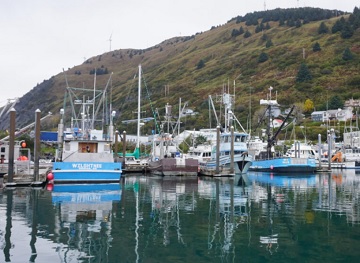
Kodiak lawmakers outline fishery-related accomplishments and ambitions
A bill that passed the Alaska Legislature last year has already started to benefit the fishing industry, and more fishing-specific bills are in the works this year, state lawmakers representing Kodiak said on Friday at an industry conference. Alaska Senate President Gary Stevens, a Republican leading a bipartisan majority, told the audience at ComFish Alaska that he is particularly proud of a bill he sponsored that expands allowable tax credits for investments in equipment to process seafood beyond salmon and herring. The bill expanded allowable seafood-production tax credits to investments in equipment for pollock, Pacific cod and sablefish, also known as block cod. Previously, only salmon- or herring-related investments were eligible for those credits. >click to read< 08:55
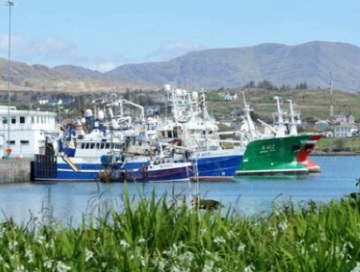
Fears Brexit will cause 1,200 job losses in Irish mackerel sector
Ireland’s mackerel sector will lose more than 1,200 jobs by 2030 because of Brexit, according to fishing industry representatives. The economic cost to the industry in lost revenue and impact on the local economy is also estimated to be more than €800m. This is according to an analysis of the impact of Brexit on the sector which predominantly centres around mackerel, blue whiting, and herring catches. In three years, from 2021 to the end of 2023, pelagic fishers will, for example, have lost a total of 37,508 tonnes of their mackerel quota, the amount the EU says they can catch. >click to read< 20:20
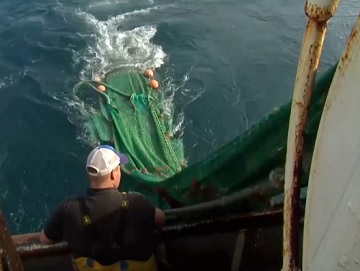
Brexit three years on: The fishing industry says ‘It’s killing us’
Of all the many Brexit battlegrounds, fishing was one of the hardest-fought. It moved beyond political promises and threats into legal action, angry blockades and trawlers being seized. Having spent almost 50 years as a fisherman, Ian Perkes was at the heart of the matter. Fishing out of Brixham, south-west England, Perkes voted ‘Leave’ in order to rid himself of EU competition and quotas. When CGTN Europe spoke to him in 2021, it was already proving difficult, with extra paperwork and costs eliminating profits. Two years on, has the situation improved? It’s a far cry from the post-Brexit dream that Perkes was sold by former UK prime minister Boris Johnson and other members of the ‘Leave’ campaign. >click to read< 21:00
Elections fail to be a fisherman’s friend
 This is what government looks like to us. Politicians a very long way from the action have or adopt ideas that range from the sensible to the downright idiotic. Without an effective check from an emaciated, austerity-hit civil service, they reach out to “stakeholders” – often organisations with no “stake” at all, such as green activists funded by giant multinationals – who hand them ready-made proposals for new regulations and laws. Once these policies are enacted, the politicians turn to the people and communities most affected and say, Read the rest here 07:37
This is what government looks like to us. Politicians a very long way from the action have or adopt ideas that range from the sensible to the downright idiotic. Without an effective check from an emaciated, austerity-hit civil service, they reach out to “stakeholders” – often organisations with no “stake” at all, such as green activists funded by giant multinationals – who hand them ready-made proposals for new regulations and laws. Once these policies are enacted, the politicians turn to the people and communities most affected and say, Read the rest here 07:37
Environmental NGOs in question – A reminder of who the fishing industry (worldwide) is up against these days
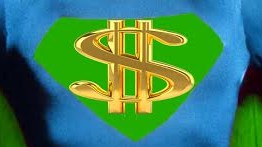 A reminder of who the fishing industry (worldwide) is up against these days – it used to be fishermen and the weather – now the industry fights on all fronts. “The role of NGOs is often debate whether at their field operations and their results, their funding or their questionable networks (dealings with multinationals),,, Read more here 08:53
A reminder of who the fishing industry (worldwide) is up against these days – it used to be fishermen and the weather – now the industry fights on all fronts. “The role of NGOs is often debate whether at their field operations and their results, their funding or their questionable networks (dealings with multinationals),,, Read more here 08:53
Fisheries scientists head out for summer sea census – Most of the catch expected to be haddock, dogfish, silver hake and lobster
Ten scientists with Fisheries and Oceans Canada headed out from the dock at the Bedford Institute of Oceanography on Monday for a three-week research trip to conduct a so-called sea census. The goal is to determine the health of Canada’s East Coast fish populations and check on the state of the water they live in. Read more here 07:12






